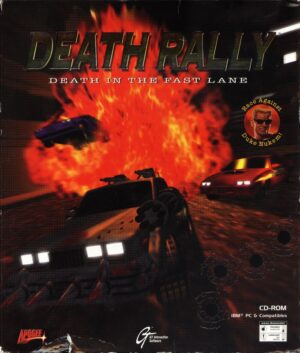Retro Replay Review
Gameplay
The heart of 1193 Anno Domini: Merchants and Crusader lies in its deep and multifaceted trading simulation. You begin as a modest, unknown merchant, competing against three rivals—each of whom can be controlled by AI or by other players in multiplayer mode. From the outset, the game encourages you to scout out opportunities in 98 distinct towns across the medieval map, buying low and selling high to build your fortune.
(HEY YOU!! We hope you enjoy! We try not to run ads. So basically, this is a very expensive hobby running this site. Please consider joining us for updates, forums, and more. Network w/ us to make some cash or friends while retro gaming, and you can win some free retro games for posting. Okay, carry on 👍)
Producing goods adds another layer of strategy: with 22 production facilities spanning six economic sectors, you can cultivate raw materials, manufacture finished products, and integrate vertically to maximize profits. Decisions about what to grow, where to build mills or forges, and how to transport your goods across potentially hostile terrain keep every trading run fresh and engaging.
Risk management is as important as profit margins. Caravans must be guarded against bandits and rival merchants, while weather fluctuations and outbreaks of plague can dramatically alter supply, demand, and your bottom line. Success demands strategic foresight, occasional diplomacy with local authorities, and the nimbleness to reroute or stockpile goods when calamity strikes.
Graphics
Though rooted in classic simulation design, 1193 Anno Domini delivers crisp, evocative visuals that capture the spirit of the High Middle Ages. Towns are laid out with period-appropriate architecture, from timber-framed houses to bustling marketplaces, and each of the 98 settlements has its own visual flair based on regional influences.
Caravans and production buildings feature simple yet effective animations: merchant wagons lumber across static trade routes, while windmills and kilns pulsate with activity. Weather effects—driving rain, drifting snow, or scorching sun—overlay the map and subtly remind you that the elements are as much a character in your story as your rival traders.
The user interface is functional and clean, with clear icons for goods, production chains, and town statistics. A zoom-level toggle allows you to study local market details or pan out to grasp the big-picture trade routes, ensuring you never lose sight of both micro-management needs and macro-strategy goals.
Story
1193 Anno Domini forgoes a scripted narrative in favor of emergent storytelling driven by your actions and the interplay of rival merchants. As you grow from an obscure trader into a respected power, the game weaves its own tale of ambition, risk, and occasional alliance. Every successful convoy or thwarted bandit attack builds your personal saga.
Historical flavor seeps in through thematic touches: Crusader-era politics, church edicts, and local taxation debates all become part of your trading journey. When you gain enough influence, the town councils invite you to participate in decisions on levies, defense levies, or aid to the poor—a subtle reminder that commerce and politics were inseparable in medieval society.
Tasks assigned by the town or the church—such as funding a cathedral renovation or provisioning a garrison—add narrative weight to your commercial achievements. Successfully fulfilling these obligations not only enhances your reputation but also alters the wider world, unlocking new trading privileges and strengthening your legacy.
Overall Experience
1193 Anno Domini: Merchants and Crusader offers a richly detailed economy that balances depth with approachability. The initial learning curve can be steep—especially when weighing production investments against fluctuating market prices—but the well-designed tutorial and contextual tooltips ease new players into the medieval marketplace.
Multiplayer skirmishes bring a competitive edge, as human opponents exploit every market crack and forge alliances to crush your ambitions. In single-player mode, the AI rivals pose a formidable challenge, adapting to your strategies and keeping the tension alive throughout long trading sessions.
With nearly limitless replayability—courtesy of varied town layouts, shifting economic conditions, and dynamic threats—1193 Anno Domini stands out as a must-have for fans of historical simulations. Its blend of trading depth, emergent storytelling, and strategic decision-making ensures that no two playthroughs feel the same, making it a rewarding choice for anyone seeking a true medieval merchant adventure.
 Retro Replay Retro Replay gaming reviews, news, emulation, geek stuff and more!
Retro Replay Retro Replay gaming reviews, news, emulation, geek stuff and more!









Reviews
There are no reviews yet.